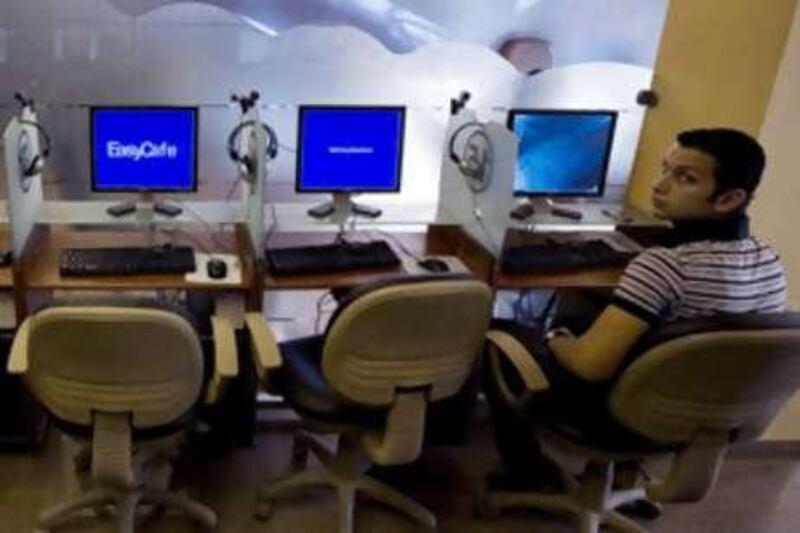Internet services in the Middle East should return to normal by Sunday, Etisalat says, as repairs on damaged undersea fibre-optic cables in the Mediterranean continue. Repairs were originally projected to be completed by Thursday, but would take longer than expected after complications emerged and a new fault developed in one cable, said Ali Amiri, the vice president for carrier and wholesale services at Etisalat. Repairing undersea cables is a complex, delicate procedure, and the stress caused by repairs can often cause additional faults to develop. In this case, one line appears to be malfunctioning about 400km from the Egyptian coastal city of Alexandria. "Overall, we are happy with the progress being made, and with our response to the situation," Mr Amiri said. "We restored services quickly to our customers and have maintained enough capacity to keep everything running." Three undersea cables were cut off the coast of Italy on the morning of Dec 19. No official explanation has been given for the almost simultaneous cuts, but speculation centres on an undersea earthquake or landslide. Two repair ships are working on restoring service to the lines. If the weather remained favourable and no new complications emerged, the cables should be fully operational by Jan 4, Mr Amiri said. One or two extra days could be added if things did not go as planned, he added. In the meantime, internet connections in the UAE are working largely as normal, with internet providers redirecting traffic on lines through Asia and the US. Some download-intensive services, like video streaming and online gaming, have been temporarily blocked to ensure basic internet services remain available. The first cable to return to service will be the FLAG line, operated by India's Reliance Globalcom. Laid in the mid-1990s, the FLAG cable runs from Japan to the UK, with stops in countries across Asia, the Middle East and Europe. It differs from other lines in that it is owned and operated by a single private business, rather than a consortium of national telecommunications companies. Two consortium-owned cables were also damaged in this month's cuts, and are being repaired by a ship operated by France Telecom. Etisalat uses all three cables to send internet and telephone traffic to Europe and beyond. Disruptions to undersea cable services are relatively common events and normally go unnoticed by the public, as internet providers redirect traffic. But the small number of cables connecting the Middle East to the outside world means there are less backup options when a single cable fails; multiple failures, which have happened twice this year, can bring internet connections to a standstill. Regional telecoms companies such as Telecom Egypt, the Cairo-based Orascom Telecom, Saudi Telecom and Etisalat are all investing in new undersea lines that will connect the region to Europe and Asia. The companies say new lines will reduce the likelihood of serious internet disruptions in the future. tgara@thenational.ae
Delay to internet cable repairs
Complications with repairs to damaged undersea fibre-optic cables will delay Middle East services returning to normal until Sunday.

Editor's picks
More from the national




